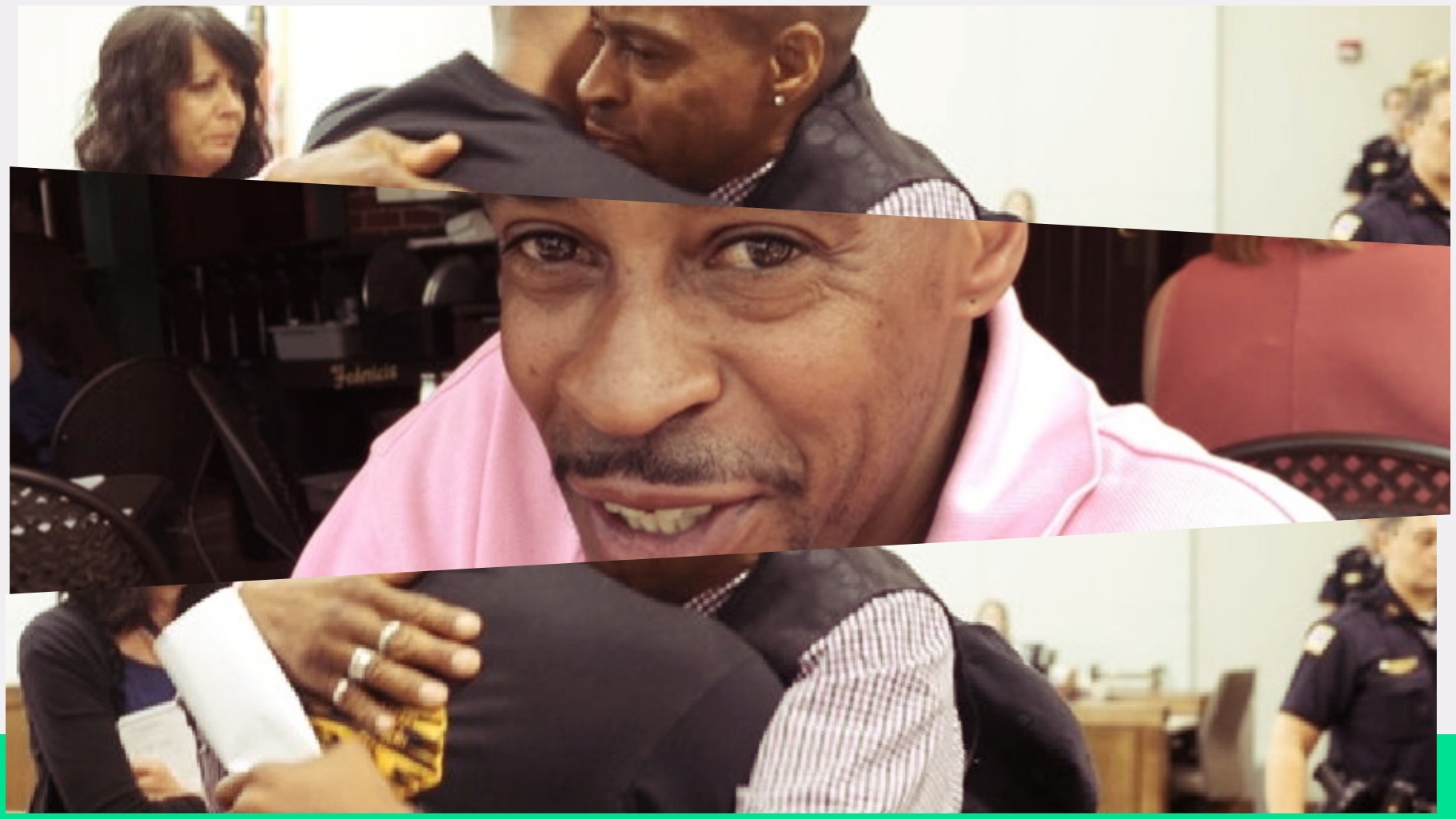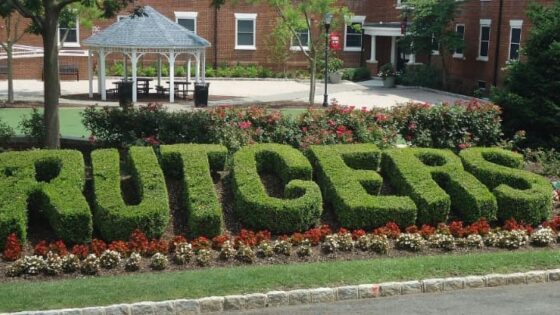At 22 years old, Dion Harrell was wrongfully convicted of rape. He spent four years in prison for the conviction and more than two decades on the sex offender registry.
Table of Contents
Dion Harrell was falsely accused
Harrell always maintained he was not the real suspect in the 1988 case when a 17-year-old girl was raped after leaving her job at McDonald’s in Long Branch.
Harrell told authorities he’d been playing basketball with his friends, including a police detective, and later went on a bike ride with his three-year-old nephew to a friend’s house nearby at the time of the crime. Several of his friends, including the detective, also testified in his defense.
The victim provided a vague description of the suspect and serology testing conducted by New Jersey State Police Laboratory only placed Harrell in less than 2 percent of the population connected to the crime scene.
While evidence and testimony seemed to point in Harrell’s favor, it wasn’t enough.
On May 19, 1992, Dion Harrell was found guilty of second degree sexual assault and sentenced to eight years in prison.
In a fight for his life
Though discouraged, he was determined to prove his innocence.
While in prison, Harrell wrote a letter to the Innocence Project, a non-profit legal organization that helps exonerate people through DNA. He heard about the organization through his peers and hoped they could aid in clearing his name.
After serving four years in prison, Harrell was released on parole. Upon terms of his sentence, Harrell also had to register as a sexual offender for his natural born life.
Dion Harrell was no longer incarcerated but his conviction had a lasting effect in the outside world.
Affectionately known as “Dobie” in the community, he was often subjected to ridicule and limitations because of his conviction. His conviction restricted his opportunity to earn an honest living, get housing, and rebuild his life with his family.
“People looked at me the wrong way,” Harrell told NJ Advance Media last year. “I come to a barbecue, people say, ‘Watch out for the kids, he’s here.’”
The Innocence Project finally took his case in 2013, moving Harrell forward to clearing his name. The legal organization sought DNA testing of the evidence, including a rape kit. But that information wouldn’t come easy.
Initially, New Jersey prosecutors opposed DNA testing. Authorities said Harrell didn’t qualify under New Jersey’s DNA Access law since he was no longer incarcerated. The District Attorney’s Office initially informed the Innocence Project that the evidence no longer existed. Once it was found the district attorney opposed testing because Harrell was already out of prison, Harrell’s case was ultimately a catalyst for New Jersey to change its DNA access law.
Eventually, the prosecution agreed to testing. New Jersey enacted a law, which was approved by Gov. Chris Christie in November 2015, that creates a right for individuals who are no longer incarcerated to access post-conviction DNA testing.
The DNA results were exactly what Harrell had said during his entire fight for justice: he was innocent.
DNA testing of the rape kit excluded Harrell and pointed to an unknown male. The prosecution immediately agreed to vacate the underlying conviction as well as two felony convictions that Harrell incurred for failing to comply with the state’s sexual assault registry.
On August 3, 2016 the New Jersey court officially vacated the 1988 rape conviction based on new DNA evidence.
Justice Delayed is Justice Denied
The criminal justice system stole years of freedom and life from Harrell. While Harrell was finally exonerated, he faced another uphill battle with the State of New Jersey.
In 2018, Harrell sued the state for compensation for his wrongful conviction, but the state Attorney General’s Office, which represented Treasury officials in the case, argued that the law required him to file his claim within two years of his release from prison, meaning the window for his payment had long closed.
That meant Harrell was required to sue the state back in 1997, as a convicted rapist on parole.
Harrell attended hearings and press conferences, telling his story, to help improve the law not only for himself but for other wrongly convicted people as well, so that they could be fairly compensated. Dion Harrell simply never gave up.
“When you know you’re right, keep going for it,” he said the day he was exonerated. “Maintain your innocence, you gotta fight — fight!”
In early 2020, an appeals court denied him compensation based on a legal technicality. Gov. Phil Murphy’s administration spent two years fighting his claim for compensation under New Jersey’s Mistaken Imprisonment Act, arguing he filed for it too late.
Facing scrutiny over the legal fight, state authorities buckled and settled with Harrell . The sum was not disclosed, but under state law he was entitled to $50,000 for every year he spent locked up.
Dion Harrell’s Untimely death
He received a payment in April of 2020, according to reports.
But his victory would be short lived.
Dion Harrell passed away unexpectedly on Jan. 15.
He was found outside his Long Branch home. No foul play was suspected, and Harrell’s family said they believe he suffered a medical episode.
He was 53 years young.
Harrell’s conviction haunted him for the rest of his life, said his cousin, Bryan Brodie. As the family awaits his autopsy results, Brodie said to NJ.com, “He was dealing with a lot of demons from this case, and that’s what ultimately killed him.”
He loved his two children and three grandchildren, Brodie said, and he enjoyed fishing, working on cars and watching basketball.
“Dion was a kind person, a giving person,” his cousin said. Brodie recounted a story he heard in recent days from a friend: Harrell had spent the night at his friend’s house, but departed early in the morning. He left behind a thank-you note and a $100 bill.
Dion Harrell’s case is a constant reminder the nation still has much work to do to rehabilitate our flawed criminal justice system.
What happened to him was a grave injustice. Yet, despite the hardships and the life-long impact of Harrell’s wrongful conviction, he always broke through the pain with a smile.
“I went through a whole lot, but I kept my head up through it all,” Mr. Harrell told the Innocence Project in 2016.
Dion Harrell is survived by his two daughters, three grandchildren, five brothers, one sister, and a host of relatives and friends.
Jersey Voices will always remember Harrell’s kind soul, his infectious smile, and most of all his will to never give up.
Rest in peace.










